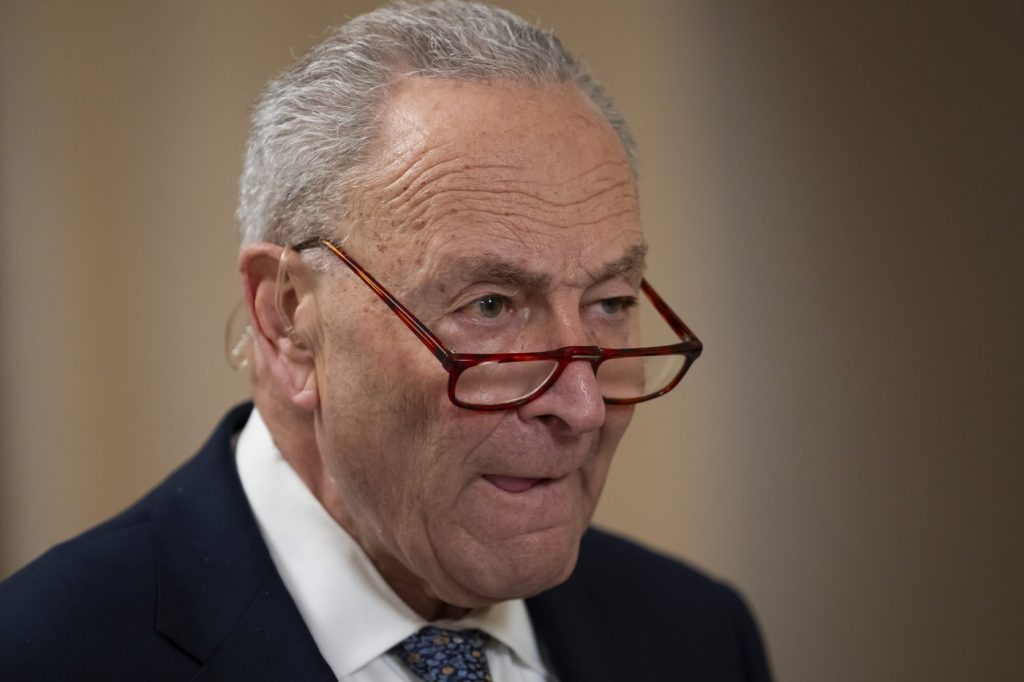Senate Democrats faced a challenging conclusion to a 10-week period marked by internal turmoil and external pressures as they tried to navigate their minority status in Congress amidst President Donald Trump's administration. The tense atmosphere culminated in a significant divide among party members regarding a Republican spending bill that many Democrats opposed, which they believed would grant Trump excessive power over budgetary matters.
As reported by Senator John Hickenlooper of Colorado, Democrats struggled to choose between supporting the Republican spending bill they detested or allowing a government shutdown. Hickenlooper described the situation as facing "two horrible things," which left many party members unsettled. The turning point came when Senate Democratic Leader Chuck Schumer declared he would endorse the Trump-supported measure, resulting in a backlash from within the party. Schumer's decision was intended to prevent a shutdown that could further empower the president, an argument he presented to mitigate the discontent from his colleagues and activists.
The backlash against Schumer was swift, with criticism coming especially from House Democrats, including House Democratic Leader Hakeem Jeffries. The tension following Schumer's announcement was further complicated by the growing number of presidential Cabinet confirmations by Republicans without significant dissent. This left Democrats feeling increasingly marginalized, especially after losing several key votes on Trump’s controversial nominee selections, such as Defense Secretary Pete Hegseth and Health and Human Services Secretary Robert F. Kennedy Jr.
Further complicating the Democrats' position was a wave of retirements from several swing state senators, including Jeanne Shaheen of New Hampshire, signaling an increasingly bleak outlook for future Senate elections. The atmosphere during the days leading up to the vote was described as tense, with hours-long meetings that ended without resolution, leaving many Senate Democrats tight-lipped when questioned by the media.
In a move that seemed uncharacteristic for a party leader, Schumer found himself at odds with the Democratic base, who largely opposed the spending bill. He rationalized his support by stating that a partial government shutdown would cause further damage and create a detrimental scenario for the party. The mixed reactions to his decision were evident, with some senators like Massachusetts' Elizabeth Warren withholding confidence in his leadership, while others like Michigan's Gary Peters supported him, believing that the decision showed necessary leadership strength.
Looking ahead, Schumer expressed optimism, asserting that Democrats would renew their focus on criticizing Trump, especially concerning his economic policies and the ensuing effects on middle-class Americans. He emphasized this point while entering the Senate to vote on the spending measure, reiterating the party's commitment to an aggressive economic messaging strategy against the president.
Senator Peter Welch of Vermont termed the spending vote as a "tough political call," but affirmed the party's intention to maintain unity around their economic messaging. He acknowledged the frustrations expressed by the party's base for more confrontation but also highlighted the precarious position Democrats hold as the minority in both houses of Congress, underlining the need to utilize their limited influence creatively.
Senator Richard Blumenthal echoed this sentiment, advising colleagues to maintain their focus amid frustrations. He noted that Democrats must navigate their minority status tactically and capitalize on the growing anger against the current administration to unify their efforts and strategies moving forward.










